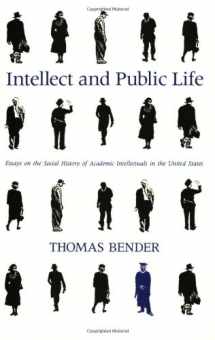
Intellect and Public Life: Essays on the Social History of Academic Intellectuals in the United States
Book details
Summary
Description
Thomas Bender explores both the nineteenth-century origins and the twentieth-century configurations of academic intellect in the United States.
Periodic "crises" in our academic culture remind us that the organization of our intellectual life is a product of history―neither fixed by the logic of social development nor inherent in the nature of knowledge itself. At a time of much unease in academia and among the general public about the relation of intellect to public life, Thomas Bender explores both the nineteenth-century origins and the twentieth-century configurations of academic intellect in the United States.
Intellect and Public Life pays special attention to the changing relationship of academic to urban culture. Examining the historical tensions faced by intellectuals who aspired to be at once academics and citizens, Bender traces the growing commitment of intellectuals to professional expertise and autonomy. He finds, as well, a historical pattern of academic withdrawal from the public discussion of matters of general concern. Yet the volume concludes on a hopeful note. With the demise of the classical republican notion of the public, Bender contends, there has emerged a more pluralistic notion of the public that―combined with the revival of interest in pragmatic theories of truth―may offer the possibility of a richer collaboration of democracy and intellect.


We would LOVE it if you could help us and other readers by reviewing the book
Book review



